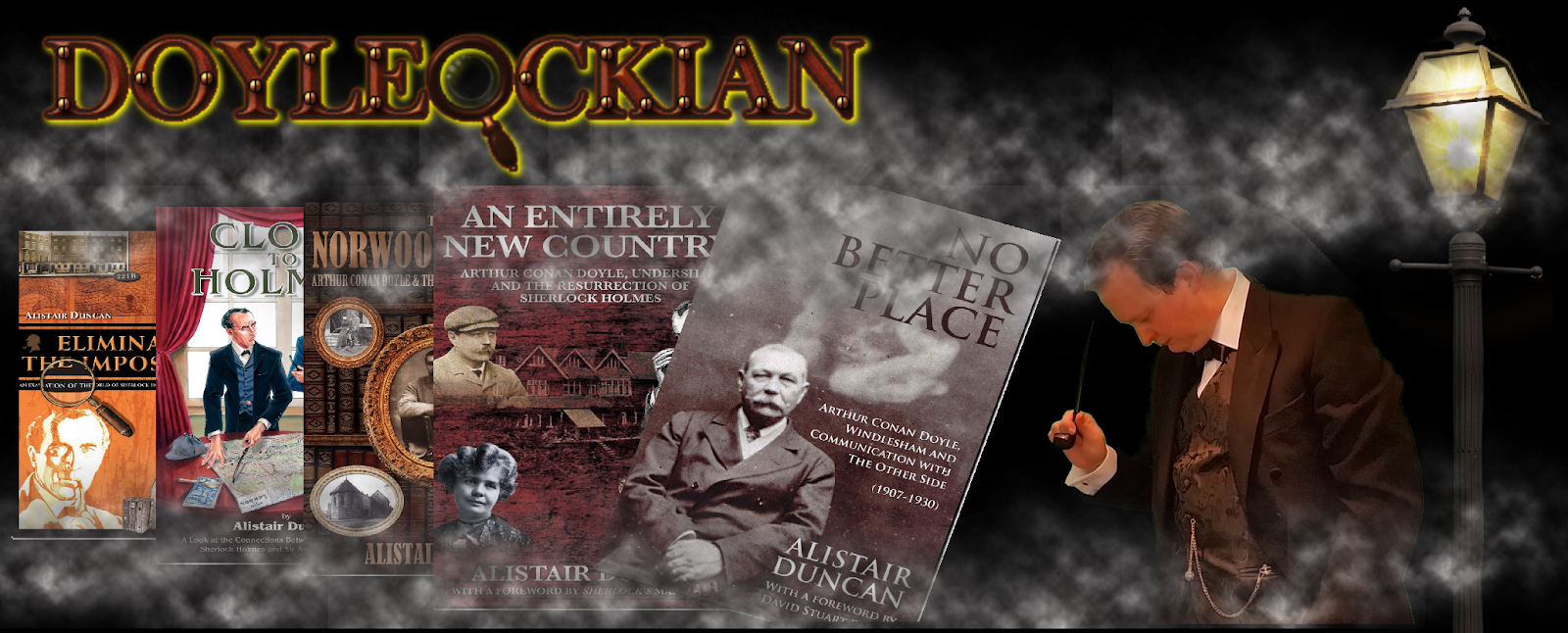Sherlock Holmes and drugs
Readers of the Canon (and people who have watched some screen adaptations) will be familiar with Sherlock Holmes and drugs. However, only those who have read the Canon will be aware of the true position which is that Sherlock Holmes only ever turned to drugs when bored. Many adaptations have ignored this golden rule for reasons best known to their screenwriters.
The thing that I find interesting is the almost pendulum swing in attitude when it comes to the screen portrayal of said drug use. In the early days of talkie Holmes films the subject was avoided. It is only in recent releases of Basil Rathbone's version of The Hound of the Baskervilles that the line "Watson, the needle!" has been restored after decades of being cut from broadcast.
The BBC series with Douglas Wilmer and then Peter Cushing also shied away from it but it was perhaps a problem issue during the 60s when use of drugs was possibly at its highest since the late nineteenth century.
The Granada series in the 80s and 90s was less afraid of it and the hypodermic needle of Holmes was used to make it plain that Holmes had just taken cocaine although the actual injecting of the drug was not shown. So unafraid were they that a discussion between Holmes and Watson on the dangers of drugs was played out in the first scene of the first episode A Scandal in Bohemia.
Then, as we entered the 21st century, we saw a more graphic attitude to the subject. The 2002 version of The
Hound of the Baskervilles and 2004 offering The
Case of the Silk Stocking (both by the BBC) gave us full on scenes of drug usage (although they were inconsistent with the Canon).
 |
| Cocaine in 2002's Hound |
In
the 2002 version of The Hound, Holmes was seen injecting cocaine on two
occasions. In the Silk Stocking (2004) Holmes was seen smoking opium and injecting cocaine.
 |
| Opium and cocaine in 2004's Stocking |
Not long after the first series of Sherlock aired in 2010, I made the observation that I was disappointed that they had elected to largely ignore the cocaine usage in favour of nicotine patches.
I was challenged (rather than attacked) for expressing this opinion. I was deemed stupid for even suggesting it when it clearly could not be done. It was suggested to me that some vulnerable fans of the show might be tempted to take it up if it was in any way glamorised.
But only five years previously the BBC was showing it on television. Has the worldwide attitude to drug usage changed so markedly in those years? I personally don't think that it has. The injection of drugs is as unacceptable to people now as it was then as far as I can tell. So what is the reason for this?
Is it because previous depictions were Victorian set rather than contemporary and that is somehow less of an issue? Is it because
those films were not as widely watched?
Please note that I am not advocating the portrayal of drug
use or proposing it be banned. I am simply curious to understand the different
approaches.
For more information on Arthur Conan Doyle and his time at Undershaw please refer to my book, An Entirely New Country which is available through all good bookstores including Amazon USA, Amazon UK, Classic Specialities, and in all electronic formats including iTunes, Kobo, Nook and Kindle .
The Norwood Author is available from all good bookstores, in many formats
worldwide including Waterstones UK, Amazon UK, Amazon USA, Barnes and Noble,
Amazon Kindle, iBooks for the iPad/iPhone, Kobo Books, Nook.
Close to Holmes is available from all good bookstores, in many formats
worldwide including Amazon USA, Barnes and Noble, Amazon UK, Waterstones UK, Amazon Kindle, Kobo, Nook and iBooks for the iPad/iPhone.
Eliminate the Impossible is available from all good bookstores, in many formats worldwide including Amazon USA, Barnes and Noble, Amazon UK, Waterstones UK, Amazon Kindle, Kobo, Nook and iBooks for the iPad/iPhone.



This comment has been removed by a blog administrator.
ReplyDelete